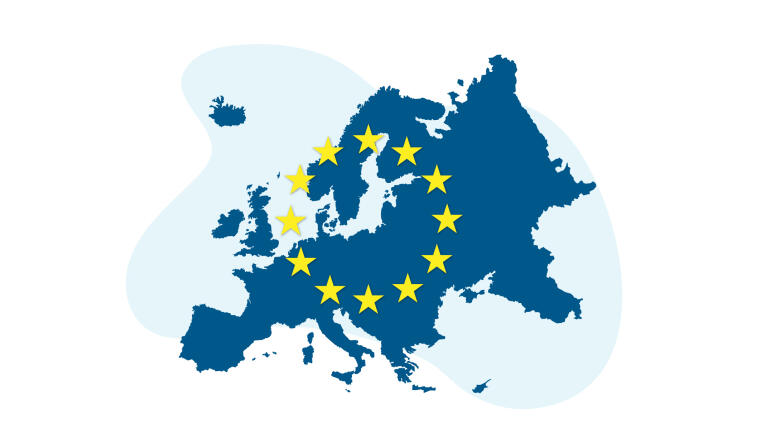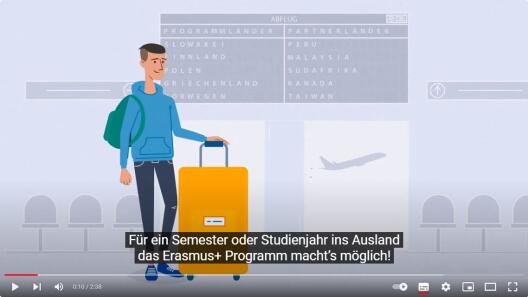
Erasmus+ Study Abroad - Outgoing
“Whoever moves, moves Europe!”
The Erasmus+ programme is a success story of the European Union (EU) and has been promoting the exchange of students within Europe for more than 35 years. Students enrolled at the University of Münster have the opportunity to study at one of the numerous partner universities for one or more semesters. The student exchange is based on inter-institutional agreements at the departmental level between universities within the network of Erasmus+ programme countries.

To play the video, it will be loaded from a Webserver of Google™ LLC. Therefore data will be transmitted to Google™ LLC.
Who can apply, how often and for how long?
- Students who are enrolled in a Bachelor's/Master's/doctorate or single-cycle degree programme (e.g. state examination) at the University of Münster, as well as seeking a degree at the University of Münster.
- Multiple participation possible: 12 months of mobility (study and/or internship) are available for each study cycle. This corresponds to 2 x 12 months (BA - MA) or 1 x 24 months (comprehensive degree programmes) plus 12 months (PhD) = a total of max. 36 months (study and/or internship)
- Minimum stay is 60 days
What are the advantages?
-
Stay at an Erasmus+ partner university
- Financial support through Erasmus+ mobility grant
- free of tuition fees at the host university
- Special funding to cover additional expenses or needs
- Academic recognition of courses and studies completed abroad
- Support for the preparation and realization of the Erasmus+ study abroad by the University of Münster
-
Which countries are participating in the programme (KA131)?
- 27 EU member states:
Belgium | Bulgaria | Denmark | Germany | Estonia | Finland | France | Greece | Ireland | Italy | Croatia | Latvia | Lithuania | Luxembourg | Malta | Netherlands | Austria | Poland | Portugal | Romania | Sweden | Slovakia | Slovenia | Spain | Czech Republic | Hungary | Cyprus - 6 programme countries outside the EU:
Iceland | Liechtenstein | North Macedonia | Norway | Serbia | Türkiye - Erasmus with partner countries (KA107) Further information
- 27 EU member states:





